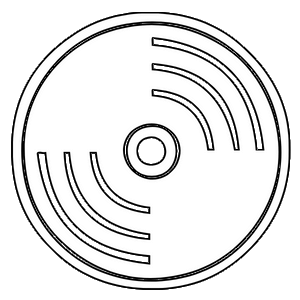When it comes to losing weight, the basic formula is to consume fewer calories and burn
more–but there’s much, much more to the story than that. Unfortunately, too many people think that so long as they’re losing weight, their diet is working. But if your body is not getting the nutrition it needs, and there’s a good chance that your weight loss–however impressive–will be temporary.
Calories are not the only things that matter for weight loss. “Calories in, calories out” will certainly work as an approximate model, and there’s a reason that this strategy helps people lose weight. But it’s a simplification of the reality, and it’s missing the point about the power of nutrition. If you have a low-calorie diet made up of frozen pizzas, for instance, it’s not going to be nutritious enough. Without proper nutrition, you’ll get sick more easily and more prone to fatigue–which will keep you from exercising properly and may even lead you to binge!
Nutrition isn’t just about weight. Your body is fueled by what you eat, and making the right decision can have impressive benefits. Take nutritional ketosis, for instance. Experts believe that, through nutritional ketosis, patients can actually reverse the effects of type 2 diabetes. That a big claim, but the pros have evidence to back it up. Simply by eating the correct things, patients can fight back against type 2 diabetes. That may seem less surprising when you consider that the reverse is widely known to be true: that eating poorly can cause you to get diabetes.
The vast range of nutrients and vitamins that our bodies need or benefit from can’t be replicated by a mere multivitamin. Even juices are not sufficient to replace vegetables and fruits. The reality is that when it comes to being truly healthy, there’s no way around a balanced diet. Taking a vitamin is a good thing to do, especially if you deal with any kind of deficiency, but vitamins alone won’t do the trick, and neither will meal-replacement smoothies or meal bars.
And eating a balanced diet isn’t that tough! Sure, you can dive deep into research about superfoods and micronutrients. But if you eat whole foods (the unprocessed types usually found against the walls of your supermarket, rather than in the aisles), eat plenty of veggies, and pay even passing attention to your macronutrients (proteins, fats, and carbohydrates), that will mark a huge step forward for you in terms of healthy eating. There are plenty of other tactics out there as well that can help you monitor how well-rounded your diet is. One strategy is to make sure your plate is full of foods of different colors, since that implies that you’re including nutrient-dense fruits and vegetables. Maybe you work well with charts. If that’s the case, take a look at the MyPlate chart put out by the USDA, which replaces the old-school food pyramid.
Crafting a sustainable, healthy diet is also key because a low-calorie diet is a temporary measure–and one that’s probably doomed. Experts say that 97% of dieters gain back the weight they lose, and that’s because most diets are not sustainable. Only a long-term change–a real habit, a real lifestyle change–will permanently make you both healthier and thinner.














